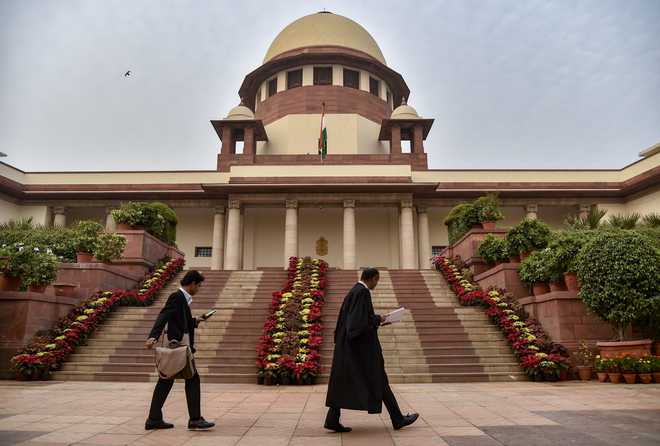
As Chief Justice of India Ranjan Gogoi superannuates, he will be remembered for agreeing to public disclosure by ruling that the office of the CJI fell within the ambit of the Right to Information Act. The decision will bolster the credibility of the judiciary in the public eye. Whether the queries under the RTI Act are tenable or frivolous is not the point. What is of note is that the apex court has agreed that it is not above the law, dispelling the forbidding image of the judiciary, couched in legalese and the threat of contempt proceedings. The decision has come with a rider of the ‘independence of judiciary’ which is difficult to grudge because checks and balances are imperative when it comes to dealing with the other two branches of government — executive and legislature.
It was mainly executive apathy that led to judicial activism to take cognisance of public sensibilities and it was the over-reach of the legislature that made the Supreme Court take recourse to the ‘basic structure of the Constitution’ doctrine to rule a law as ultra vires and strike it down. The Constitution is supreme and laws have to be framed keeping in view its avowed aims. It is the duty of the court to interpret and uphold it. The RTI is also an Act of Parliament, a tool to bring in accountability.
The judiciary has its own problems which made the then CJI Tirath Singh Thakur lament publicly before the Prime Minister that the load of litigation, judicial vacancies and tedious appointment procedures had affected the working of the courts. So, opening up will also help to highlight its bottlenecks and act as a check on possible wrongdoing. Politicians make disclosures of assets and criminal cases against them in election affidavits. Government officials too have to abide by this rule. Supreme Court judges have a security of tenure. They can be removed only through parliamentary proceedings. But opening this window takes its image several notches high. The outgoing CJI’s last few days in office have seen a flurry of decisions. But the one on RTI Act is laudable for it has to do with the judiciary itself.



























